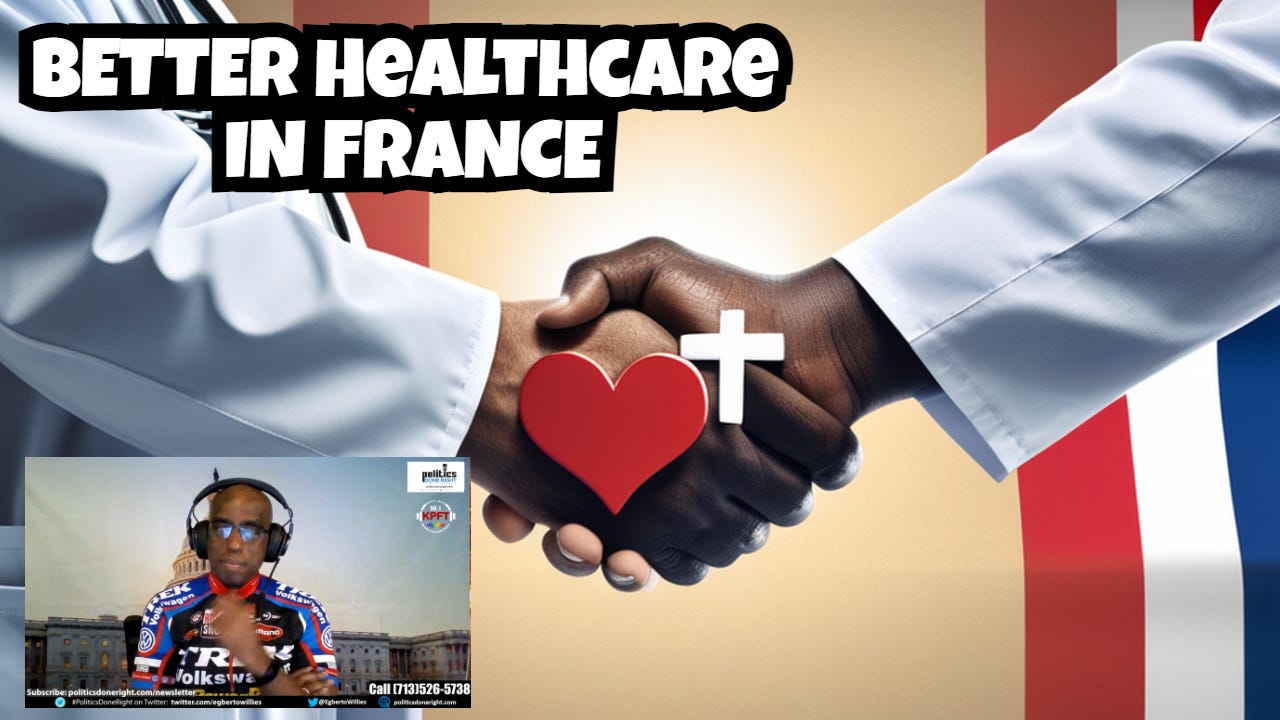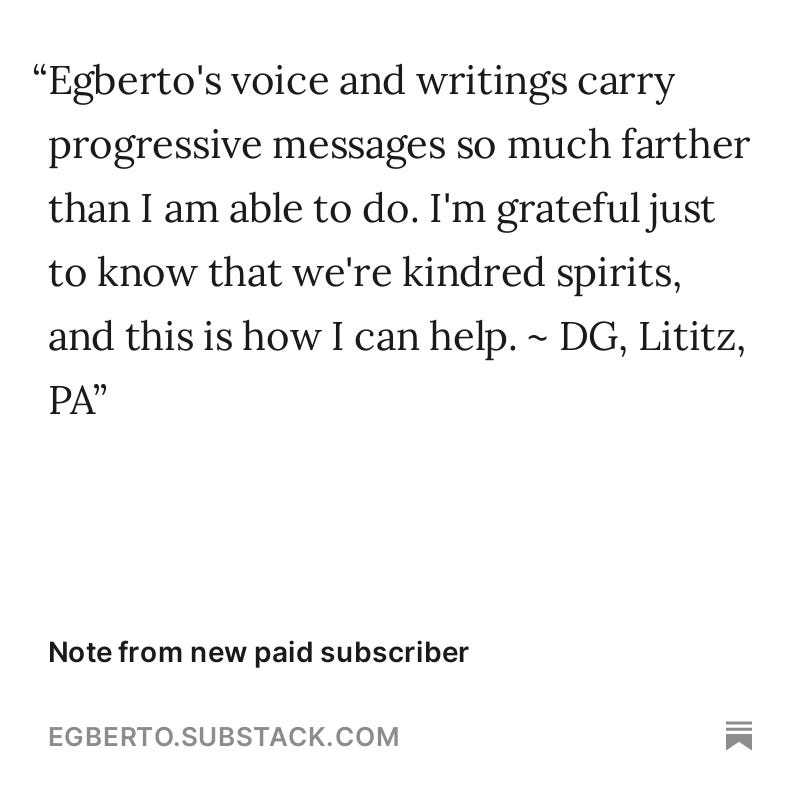A French native in America details why their healthcare system excels over our barbaric system.
A French native joined the discussion about the barbaric healthcare system in America and detailed the French system as a humane single-payer system that is stress-free and cost-effective.
A recent caller to my KPFT 90.1 FM program provided a conversation that veered into an illuminating comparison of healthcare systems across different nations, notably focusing on the French system. A caller, CiCi, originally from France, provided a heartfelt account of her homeland’s healthcare infrastructure, which she praised as superior to the American model. Her insights shed light on the systemic efficiencies and human-centric policies that characterize French healthcare, starkly contrasting the “barbaric” system prevalent in the United States.
France employs a predominantly single-payer system, which, despite facing challenges, remains robust and comprehensive. CiCi explained that the French government standardizes medical procedures, visits, and medication pricing. While private options exist, they operate alongside and not instead of public provisions. This system ensures that healthcare expenses are predictable and managed, preventing the financial catastrophes that all too often accompany medical emergencies in the U.S., including bankruptcy.
The foundational principle of the French system is its tiered approach to coverage, linked directly to social security contributions rather than employment status, which is the typical model in the U.S. Such an arrangement contrasts starkly with the American system, where healthcare is often tethered to employment, leaving the unemployed and underemployed vulnerable.
CiCi highlighted the psychological comfort that comes from the French system. In France, individuals and families do not live under the perpetual threat of bankruptcy due to medical expenses. This alleviation of financial stress contributes to a higher overall quality of life and supports better health outcomes. Studies consistently show that countries with universal healthcare systems, like France, boast longer lifespans and lower general stress levels among their populations.
Furthermore, CiCi criticized the American healthcare model as a “crapshoot,” unpredictable and inequitable, heavily influenced by private insurance and pharmaceutical companies whose profit motives often override patient care. The U.S. system is riddled with administrative overheads, high costs, and inefficiencies largely absent in France’s streamlined, government-regulated framework.
The French system also demonstrates the value of having a centralized authority like the Court of Accounts, which oversees and audits healthcare spending. This level of accountability is sorely missing in the American system, where healthcare dollars often line the pockets of executives rather than improving patient care. This institutional transparency curbs excess and boosts public trust in the healthcare system.
The call from CiCi on the radio show was a powerful testimony to the functional and ethical superiority of the French healthcare model. It underscored the potential benefits of a single-payer system—reduced administrative costs, enhanced public health, and economic savings for the government and citizens alike. Her narrative was a call to action, challenging Americans to rethink their healthcare system, dismantle the myths perpetuated by vested interests that profit from the status quo, and consider models prioritizing human well-being over corporate profits.
The discussion on KPFT was a comparative analysis of healthcare systems and a profound critique of the American healthcare paradigm. It served as a reminder that change is possible and that models exist that can provide much-needed relief and security to millions. With all its merits and modes of operation, the French system, like the Canadian and Taiwanese healthcare systems, stands as a beacon to those advocating for healthcare reform in the United States. It is a testament to how a nation’s greatness is reflected in how it treats its most vulnerable—the sick, the old, and the young. In this regard, America has much to learn from France.
A French native discusses American healthcare.
As the conversation wrapped up, CiCi’s parting words resonated with a call for introspection and radical change—words that every American grappling with the healthcare system’s complexities and injustices should reflect upon. This progressive message, if spread widely and embraced, can transform American healthcare into a system that is efficient but also just and humane.
Please support our values via Independent Media.
The other side has big donors and everyday citizens who invest heavily in platforms that lie and misinform. All we have is you. So, please invest in our media outlet by clicking the subscribe button below to become a paid subscriber. You won’t miss that coffee, but it will make a difference in our politics as we spread the truth about our policies and progressive politics. All paid subscribers get to read my five books on this platform and all subsequent books I write. They will also be privy to subsequent incentives.







